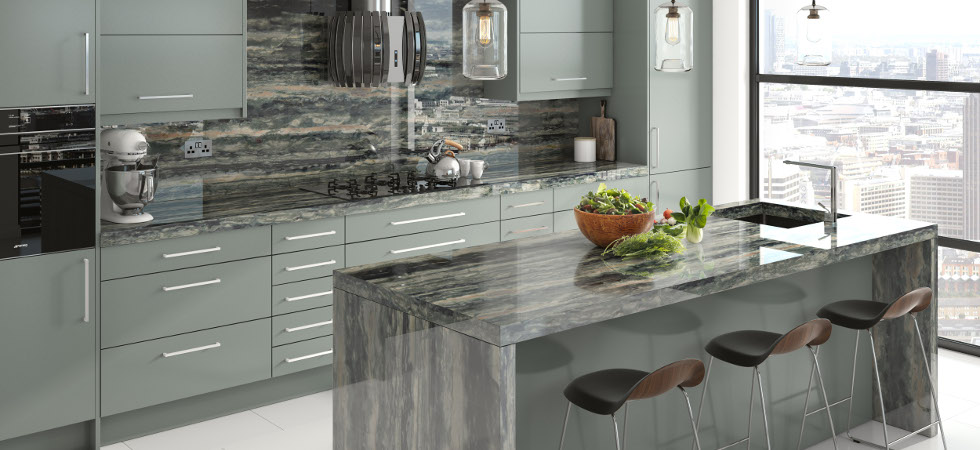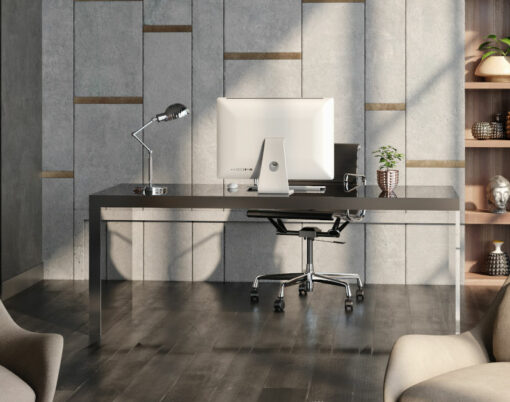From eye-catching marbles to exotic quartzites and ever-popular granites, there are more choices than every before for kitchen worktops. With such an array of materials and factors to consider, Oliver Webb, director at fine quality stone specialists Gerald Culliford, talks through the pros and cons and everything in between when it comes to choosing the perfect kitchen surface.
Granite
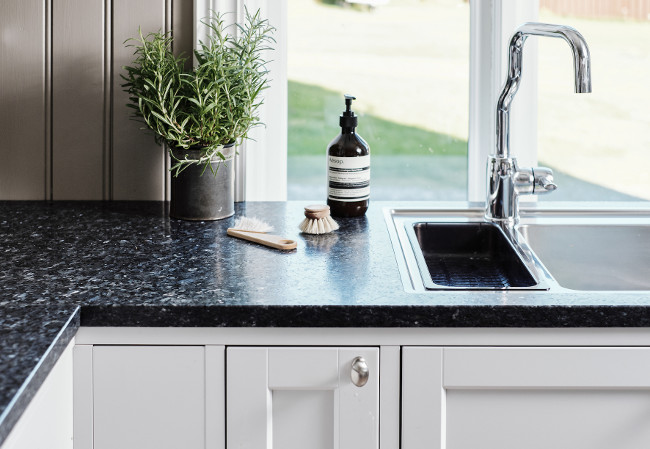
Arguably one of the most popular choices for worktops, a granite surface is both durable and functional. Ranging from hard to soft, granite is a natural stone and as such offers a huge variety of shades and patterns. Harder granites such as Lundhs’ Larvikites or Anorthosites will not need sealing whilst most other softer granites will perform best if sealed. Good sealant will stop the ingress of water, oils and other liquids on all natural stone and day to day cleaning can be done with a light soapy solution. Although the majority of granites should be able to withstand hot things being placed on the surface, there is always a slight chance of thermal shock, so it is best to use a trivet or chopping board. There are however harder materials such as the Lundhs Real Stone that are strong enough to withstand the heat of hot pans.
Quartzite
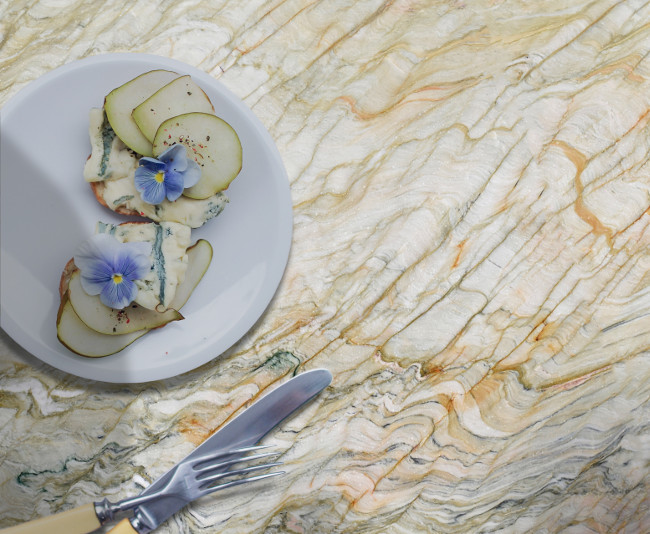
As the trend for more marble-effect surfaces has developed, quartzite materials have been quarried more and more. Whilst all types of quartzite make for a hardwearing and sound worktop choice, similar to granite, the harder quartzites will be more resistant to scratches and other daily wear and tear than the softer ones. Commonly harder than a marble and often wonderfully wavy, a quartzite is the perfect choice for those looking to make a statement either on walls, central islands or kitchen worktops.
Marbe
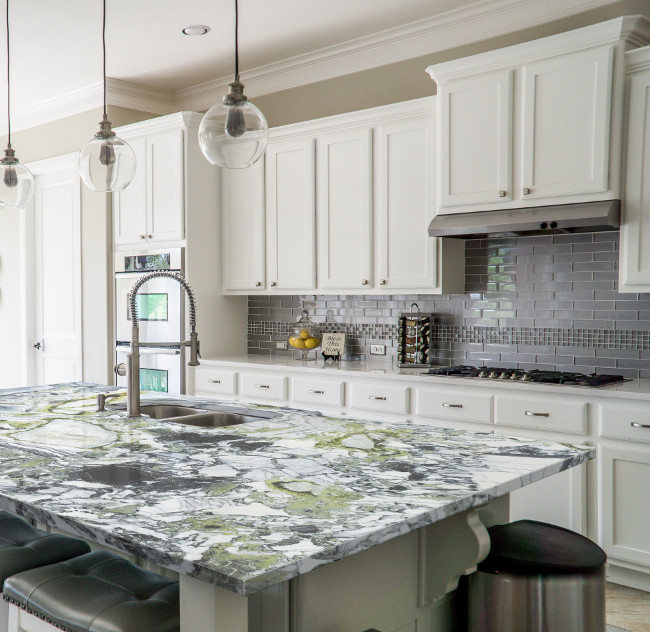
Due to current trends, it is mainly the Carrara marbles such as Statuary, Calacatta, Arabescato and Carrara itself being used for work surfaces but this doesn’t mean that there aren’t other good marbles out there that can be used. Marble comes in a wide variety of colours and patterns. There are beautiful hard green European marbles as well as stunning Indian and Portuguese stones that are used frequently on the Iberian Peninsula, that perform similarly to the Carrara marbles. As with all the work surface material groups, there are some harder types and some softer ones. When it comes to durability, marbles in general will over time develop a patina from small scratches and possible staining if the sealant does not work well. The benefit of having a marble work surface is that any stains that do appear can be removed with a poultice and it can be re-polished in situ if needed.
Engineered quartz
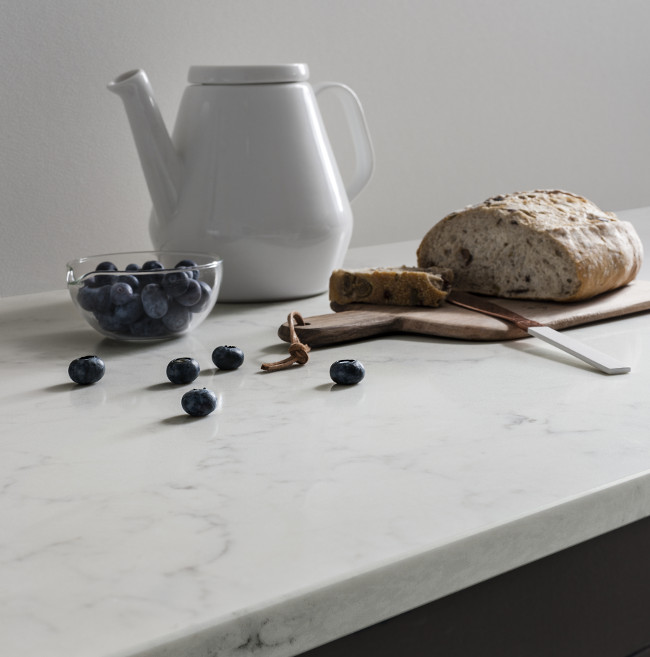
Engineered quartz worktops, such as those by Radianz, perform really well as kitchen work surfaces, and this is their main application. Thanks to their ability to create and change with the current trends, the colours are constantly evolving and being quartz, the surfaces are extremely hard. They are stain resistant and the surface is very resistant to cutting on and although they are not impervious to UV, so over the years will fade a little and lose their lustre, they are a fantastic option for the kitchen worktop.
Ceramics
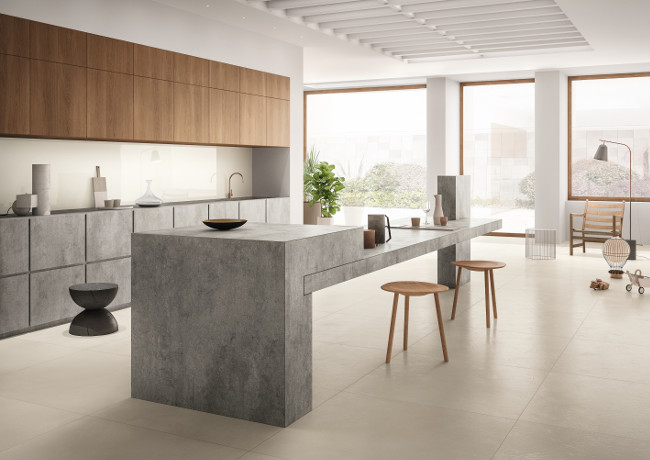
Slowly growing in popularity, ceramic worktops are extremely durable to heat and staining. Crafted from ceramic clays and mineral colourings, the SapienStone worktops are available in a range of colours and finishes and can cater to a variety of tastes from the ultra-contemporary to a more traditional style. The material is UV resistant and can therefore be used outside and as the pattern is made from a photograph, the colours can vary with market demand easily. At just 12mm, they’re ideal for creating a very sleek looking finish to a kitchen worktop.












